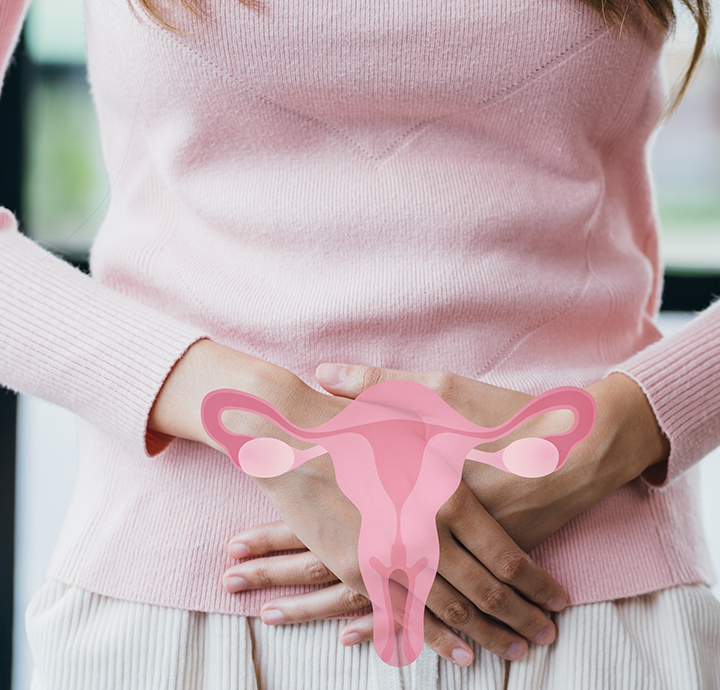
The thyroid is a gland located in the neck and plays an important role in the body. The main task of this gland is to produce and secrete thyroid hormones.
These contribute to many essential functions such as regulating the body's metabolism, controlling energy production, and managing cell growth and development. It is a common disease throughout society and the answer to questions such as "Does anyone with thyroid disease get pregnant?" is often sought.
The functions of this gland can directly affect the reproductive system. In addition, hormones here control many physiological processes by regulating the body's metabolism. An imbalance can negatively affect sexual health. Too much or too little secretion can cause various diseases. An overactive thyroid gland is called "hyperthyroidism" and can lead to accelerated metabolism, palpitations, weight loss, and other symptoms. On the contrary, an underactive thyroid gland is called "hypothyroidism" and can lead to slowed metabolism, fatigue, weight gain, and brain fog.
In women, thyroid hormones play an important role in regulating the menstrual cycle. Disruption of the function of this gland can lead to irregular menstrual cycles and even problems such as amenorrhea. In addition, related diseases also play an important role during pregnancy. The proper functioning of these hormones during pregnancy is critical for the neurological development and overall health of the fetus. An imbalance here can lead to complications such as premature birth, low birth weight, and mental retardation in the baby. The concern "Will the thyroid interfere with conception?" is not unfounded and the function of this gland has a significant impact on infertility.
Thyroid function in men can also affect reproductive health and cause infertility if it is irregular. Problems here can affect sperm production and quality. If hormones are not working properly, it can lead to a decrease in sperm count or a deterioration in sperm morphology. People at risk should be in regular contact with a specialist and plan treatment if necessary to maintain reproductive health and prevent possible complications in the future. It is also important for couples who want to have children to keep an eye on their thyroid levels, as this is essential for a healthy pregnancy and baby development. "What should thyroid patients do to get pregnant?" should also be discussed with a doctor.
There are important thyroid-related disorders. Hyperthyroidism is a condition in which the thyroid gland is overactive. In this case, the relevant hormones (T3 and T4) are secreted in excess. Causes of this problem include conditions such as Graves' disease, thyroid nodules, and thyroiditis. Symptoms include rapid heartbeat, excessive sweating, restlessness, weight loss, tremors, and swollen eyes.
Nodules are small masses that form in the thyroid gland. Although they are usually benign, in some cases they can be associated with cancer, although this is rare. Large or rapidly growing ones can press on surrounding tissues and cause breathing or swallowing problems. Cancer is another associated disease. It is caused by the uncontrolled growth of malignant cells. The most common type of thyroid cancer is "papillary thyroid cancer". Other types include follicular cancer, anaplastic cancer, and medullary cancer. However, early detection and the right treatment are successful in many cases.
Another disorder, Graves' disease, is an autoimmune disease that leads to hyperthyroidism. The body stimulates the gland, causing an overproduction of hormones. Symptoms typical of this disorder include swollen eyes, protruding eye sockets (proptosis), and skin rashes. Finally, in the postpartum period, temporary inflammation and hormone fluctuation occurs here, called postpartum. The initial period of hyperthyroidism usually turns into hypothyroidism. In light of this information, the question "Can those who have thyroid surgery get pregnant?" may come to mind, the answer is yes. When regular controls are carried out, cancer survivors can have a smooth pregnancy.
It is important to check thyroid hormone levels among women undergoing infertility treatment. When they are well balanced, ovulation and pregnancy are likely to occur successfully. It is also important that the function of this gland is optimal if in vitro fertilization (IVF) is used. Those who become pregnant after thyroid treatment offer hope to many people.
In another scenario, when hormone imbalances are detected, doctors usually prescribe appropriate medication. In the case of hypothyroidism, the level is balanced using synthetic hormones (such as levothyroxine). When these are used regularly, it may be possible for the menstrual cycle to normalize and ovulation to occur. The balance established here is also important during pregnancy. During pregnancy, thyroid hormones play a critical role in the neurological development and overall health of the baby. Proper functioning of the hormones ensures a successful pregnancy.
People who cannot get pregnant because of thyroid problems are in the minority. Nevertheless, it is important to make an appointment with a specialist physician immediately in case of any suspicion. It is useful for men and women who are prospective parents to be followed up for a certain period of time. Op. Dr. Nurettin Türktekin establishes a warm relationship with his patients and leaves no questions unanswered. For detailed information about the procedures, please contact us via our contact information.



Ovarian cysts are fluid-filled sacs or vesicles seen inside the ovary. Normally, during each menstrual period, a cyst called a follicle, which carries the egg cell and can reach 3 cm in size, forms in the ovaries. Then this cyst cracks and the egg is released. In young girls with ovulation problems, normal or physiological follicle cysts that cannot rupture can grow every month and reach 5-10 cm, while small numbers of 0.5-1 cm in size, which we call polycystic ovaries, can be seen in series. Apart from these functional cysts, benign or malignant ovarian cysts can also be seen in all age groups.
Except for the most common functional ovarian cysts, cysts can be benign or malignant tumoral cysts. In addition, as a result of infection, abscess-shaped cysts may occur, which is usually accompanied by pain and high fever.
A woman with thyroid disease can get pregnant. However, an imbalance of hormones can affect pregnancy. Therefore, if you are planning a pregnancy, you can ensure a healthy pregnancy by having your values checked and following the treatments recommended by your doctor when necessary.
Yes, you can. Generally, thyroid medications such as levothyroxine are considered safe during pregnancy. In addition, regulating thyroid function is important for the baby. However, if you are planning a pregnancy or find out that you are pregnant, you should consult your doctor and use your medication correctly.
Thyroid tests are done with a blood test. The most common tests that assess the functioning of the thyroid gland include measurements of TSH (thyroid stimulating hormone), T3 (triiodothyronine), and T4 (thyroxine). These tests help to assess thyroid function.